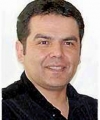Diefenbaker gave Aboriginals the right to vote; when will they get the right to own property?
National Aboriginal Day is a time for Canadians to reflect on the contributions of Aboriginal peoples in Canada. Sadly, on this day most people will instead consider the sorry state of reserve communities and ask why, despite years of well-intentioned government programming, nothing ever seems to get better for Aboriginal people.
We know at least one reason for this sorry state of affairs: the Indian Act. As a result of that Act, First Nations live on an Indian reserve that is a tract of land, the legal title to which is vested in Her Majesty. In other words, under the Indian Act, First Nations people do not own their own land. They dont enjoy the same property rights as every other Canadian. Tragically, until they do have these rights, they will always be, as one Member of Parliament said in 1918, wards of the state.
The absence of the property rights available to other Canadians has been an economic catastrophe for First Nation communities. Its hard to do business when people cant earn equity on a house or use it as collateral to borrow money. Its hard to create a prosperous community when people cant bequeath wealth to their children. And its hard to generate economic opportunity when people cant get mortgages without mortgage guarantees from the Minister of Aboriginal Affairs and band governments.
There is hope for change. For several years now, a number of First Nations, including British Columbias Whispering Pines, and the First Nations Tax Commission have led an initiative that would transfer title of reserves back to First Nations and thereby allow improved individual property rights on reserve.
In addition, a new study by University of Calgary Professor Tom Flanagan and Katrine Beauregard, Wealth of First Nations, presents evidence that the development of full property ownership for individuals on reserves will improve the economic and social well-being of First Nation communities.
Aboriginal people want to be self-reliant, they want to own property, to participate in the credit market and bring business to reserve lands. This could happen soon.
In Budget 2012, the Conservative government committed to explore with interested First Nations the option of moving forward with legislation that would allow private property ownership within current reserve boundaries. The federal government should act on that commitment to correct the historic injustice and extend the right of property ownership to First Nations people on reserve.
Consider this fact: In Canada only the mentally incompetent, children, and First Nation members on reserves cannot legally own property. It is overdue to correct this wrong.
It was just 53 years ago that Prime Minister John Diefenbakers government provided for the extension of voting rights to all status Indians. Diefenbakers words in the House of Commons on January 18th 1960 are relevant today: The provision to give Indians the vote, is one of those steps which will have an effect everywhere .[and] so far as this long overdue measure is concerned, it will remove everywhere in the world any suggestion that color or race places any citizen in our country in a lower category than the other citizens of our country.
At the time, and as unbelievable as it seems today, Diefenbakers promotion of equality was controversial in some circles. However, just as most people back then accepted the right to vote is a basic individual right, everyone should today accept the right to own property is another core human rightand of great help in promoting prosperity for those who need it most.
Authors:
Subscribe to the Fraser Institute
Get the latest news from the Fraser Institute on the latest research studies, news and events.

